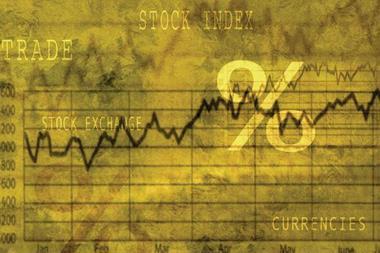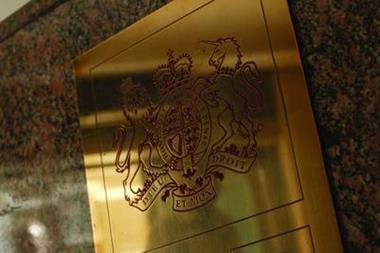Nathan Skinner runs his eye over the multitude of risks faced by companies who neglect ethical behaviour
A lot is said these days about the responsible company. It is as though a new idea of the corporation has emerged, based not just on profit but rich in purpose too. The question is whether companies really are changing the way they do business. Most major European companies have developed corporate social responsibility (CSR) statements. But in many eyes, CSR is just greenwashing.
Expectations that companies should do the right thing are higher than ever before. Given the fact that business integrity is becoming a major competitive asset, there is a tendency for corporations to take a longer-term view of themselves. As production has moved to developing parts of the world so too has the scrutiny of working conditions and business practices. This has introduced challenges for businesses partnering with local suppliers who are used to doing things in a certain way. Despite the challenges, there is still an upside. Sensible companies do not want to miss the opportunity presented by embracing 'purpose'.
It is one thing to talk about the responsible enterprise and another altogether to deliver on that promise. Few things grab headlines like a corporate scandal. A juicy scoop about executive corruption is on any editor's wish list, easily as newsworthy as the latest celebrity mishap. This means having to avoid any reputational hit arising from unethical behaviour, and preventing this has become a major exercise.
Even before the US Department of Justice began its investigation into BAE Systems – which culminated last month in its chief executive and a non-executive director being subpoenaed by US officials in Texas – the defence contractor commissioned its own inquiry into internal ethics. The inquiry, by the former Lord Chief Justice, was intended to focus on the ethical standards required to do business globally, where customers sometimes operate under different rules of engagement. While not specifically designed to tackle allegations, which BAE denies, that the firm bribed Saudi officials tied to the £43b Al-Yamamah arms deal, the report raises some serious concerns about the behaviour of senior management.
The inquiry revealed top management admitted failing to pay sufficient attention to ethical standards. The report notes: 'In the global economy, corporate reputation has become an essential part of an enterprise's value, and the effective management of ethical and reputational risks has become a critical element of corporate governance.' Dick Olver, chairman of BAE Systems, says: 'This report is an important step towards BAE Systems' objective of achieving benchmark standards of governance in the conduct of its day-to-day business.' However, according to Garry Honey, founder of the reputation consultancy, Chiron, 'the criticism of the company made by the report committee has done nothing to improve the reputation of BAE.'
Bribery and corruption are surfacing again as issues for global business. In part this could be down to recent lapses by major firms. In a survey of European businesses, by Integrity Interactive, 48% said bribery and ethical culture were the biggest risk areas last year. Bribery was the risk area that had grown the most over the last year moving from fifth to first place.
“One of the most conspicuous issues of our time is our collective impact on the environment.
Despite this awareness of risk, another survey finds that illegal business practices, such as bribery, are still being used by organisations to secure or retain business. According to research by Ernst & Young 23% of respondents admitted their organisation had been approached to pay a bribe in order to retain or win business in the last two years, while 18% said they had lost business to a competitor who paid a bribe.
In this environment, some businesses might not see much incentive to follow the rules. In the BAE case, the UK Serious Fraud Office (SFO) was unable to pursue the investigation into the Saudi arms scandal after pressure from the government forced it to halt the probe. The Organisation for Economic Cooperation and Development (OECD), one of the foremost anti-bribery bodies, has criticised the UK authorities for their weak stance on foreign bribery. A third of the compliance officers questioned by the Integrity survey believed that the authorities are not willing enough to prosecute bribery.
This may be true of some regimes, but judging by the recent detention of BAE's executives, US authorities have displayed a more aggressive and extra-territorial approach to enforcing their anti-bribery rules. Besides, it is not just a question of following the letter of the law. John Smart, UK head of fraud investigation and dispute services at Ernst & Young, says: 'Promoting ethical behaviour in your organisation – making a difference – is not just about staying on the right side of the law. It's good business.'
Areas of focus
One of the most conspicuous issues of our time is our collective impact on the environment. As big energy users, companies have a massive role to play in reducing society's carbon footprint. It is another area that is under intense scrutiny. Regulators may soon be asking companies for long term climate change metrics to be included in their annual filings. The UK has already passed laws making it compulsory for companies to file carbon emissions information.
‘Consumers are certainly more environmentally conscious these days, and the whole environmental issue is a key topic at the moment,’ says Paul Howard, head of insurance and risk management at UK retailer Sainsbury's. He believes there are a number of benefits for companies that choose to look for environmental solutions. By moving to trim the amount of packaging used in stores, Howard found that he could reduce a potential source of fire risk. By using fewer trucks to deliver to stores, to cut emissions, Howard also reduced the chances of the vehicles being involved in accidents. And by setting targets to reduce energy consumption the company has lowered its overall energy bill. 'A lot of these things are not just buzzwords they make good corporate sense as well,' he says.
“Expectations that companies should do the right thing are higher than ever before.
The supply chain has also become a key area of focus. As companies expand their operations into emerging markets they are exposed to new risks. A report by credit insurer Atradius shows that corruption is seen as the main risk in trading with emerging economies.
As a consequence, manufacturers from developing parts of the world are increasingly likely to be contractually obliged to comply with their clients' codes of practice. This follows incidents, such as Mattel's recall of 436,000 toys amid fears the paint used contained unsafe levels of lead. Companies appreciate the damage a supplier failure like this can have, particularly on their brand. According to Integrity, between 50% and 70% of European companies have contracts in place requiring their suppliers to comply with their codes of practice.
Companies are now also having to look closely at the conditions and working practices of the companies that supply them. 'Any breach in our quality and safety standards can undermine customer trust and confidence and could ultimately affect our financial performance, so ensuring the integrity of our products, and the highest standards in safety, quality, environment and animal welfare is essential.' says Gemma Lacey, project manager corporate social responsibility for the John Lewis Partnership.
'We source products from almost every country in the world, so it is never possible to provide 100% confirmation that all suppliers are fully observing the Responsible Sourcing Code of Practice at all times,' says Lacey. However, the retailer says it conducts regular checks in relation to workplace practices. Providing training in the code is vital to minimise the chances of ethical breaches by individual employees.
These kinds of assurances are important for a company's external reputation as well as its internal image. Increasingly, the best people want to work for the most responsible companies – one reason why British mining group Rio Tinto has been working with the Eden Project, a sustainable enterprise in the UK. Tim Smit, co-founder of Eden, says engaging with the organisation, is the best way of affecting a change of mood in the company. He hopes to move it towards a more environmentally conscious culture.
The drive to build an ethical culture among European companies is a trend noted by the Integrity report. In it, Roland van Weelden, of Akzo Nobel's legal affairs, says: 'Building an ethical culture is not something that can be achieved overnight. In fact it is a never-ending process as employees come and go. Constant training on a regular basis, and providing the right tools for employees to speak up, such as helplines, are vital to its success.' Employees should feel a collective responsibility for what is happening around them and feel free to speak up to defend the best interests of the company, says the report.
Ethical short-fallings were blamed for a scandal which ripped through the British broadcasting industry last year. Several broadcasters were forced to look into how they were conducting their business after a series of television phone-in competitions were found to be ripping-off viewers. ITV was hit with a record £5m (€6.2m) fine and its earnings showed that it had lost £58m (€73m) in revenues last year after being forced to give up the revenues. Graeme Lee, head of risk management at the broadcaster believes that the issue was not a wilful transgression but a failure to understand the limitations of the technology that was being used. ‘When we recognised what had happened we started internal enquiries and brought in external auditors,’ he says. The company has introduced policies to try to prevent a similar incident from happening again. 'Our new internal compliance training certainly makes people more aware of the issues, and our enterprise risk management programme also makes us search more closely for the hidden risks.'
Postscript
Nathan Skinner is senior reporter, StrategicRISK




















No comments yet